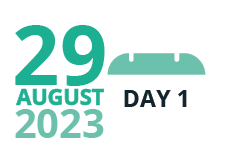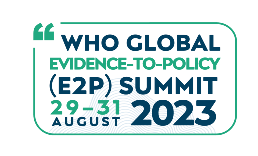The use of evidence is both a science and an art. This mapping exercise showcases how creativity and connection play a part in promoting evidence use. Discover practical strategies and gain valuable insights to shape future research priorities in evidence-to-policy processes.
The session will centre around presenting the results of "The art and science of using evidence: what works in supporting the use of evidence – a mapping exercise”. Participants will be informed about the main findings and outcomes of the mapping exercise, which explores strategies for supporting the use of evidence. These results will serve as valuable insights to guide the development of a global research agenda on knowledge translation that WHO is planning to lead in collaboration with international E2P experts and stakeholders. By understanding what works in promoting evidence use, participants can apply these findings to shape the priorities, focus areas, and methodologies for future research endeavours in E2P and knowledge translation.
Key questions and session highlights
- What are the main lessons around the art and science of using evidence?
- How can these lessons be applied to developing a global E2P research agenda on knowledge translation?



